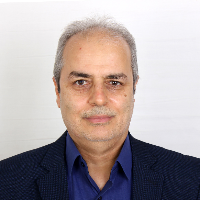Approaches and Methods of Teaching and Learning in Fourth Generation Universities from the Perspective of Faculty Members: A Qualitative Case Study
The fourth generation university defines a new career model for the higher education institution, which creates opportunities for local and regional development. From the point of view of most educational experts, teaching and learning methods are the most important sources of using the indicators of the fourth generation university and cultivating creative graduates. In fact, the implementation of the fourth generation university indicators in the teaching-learning methods continuously improves the quality of the fourth generation university curriculum. This present study was conducted to answer the following question: What are the indicators of teaching and learning methods of the fourth generation university curriculum? This was a qualitative case study whose participants were 20 faculty members of the universities in Iran, who were expert in the field of curriculum design and fourth generation universities. They were selected through snowball sampling method and their number was determined, in accordance with the principle of saturation, after a semi-structured interview. The interviews were then analyzed through qualitative content analysis. Data validity was assessed using the four criteria of acceptability, transferability, reliability and verification and its reliability was assessed using the documentation method. Findings suggest that the most important indicators of teaching methods in the curricula of fourth generation universities are: application of action-based learning approach, facilitating simulated learning opportunities, attention to participatory learning methods, and educational approach based on peer education, as well as exploratory and self-directed learning methods. The results corroborate the application of new teaching methods such as the integration of information and communication technology in the development of teaching methods for learning curricula. The findings also imply that the Institute of Higher Education, by changing its approach to the fourth generation university, can offer effective and efficient human capital training based on local and regional needs to create a better society.
-
Development of the educational support package of movement-based games for Persian language lesson and its effectiveness on learning motivation and academic emotion in the first grade primary school students
Masome Rohāni Shahraki, Leilā Heshmatifar *, Mohamadjavād Liyāghatdār
Quarterly Journal of Educational Innovations, -
The Reasons, Necessity and Method of Evaluating the Presidents of Universities in The Country and Its Obstacles From the perspective of university professors
Mostafa Bagherian Far *, Asghar Zamani, Yaghoub Sepehri, Somaye Nasirzadeh
Journal of Higher Education Letter, Spring 2025 -
Comparative Study of Master's degree of Art Education Courses in Selected Universities with the aim of Proposing Practical Courses for the Establishment of this field in Iran
Bahareh Heidari Venicheh, Mehrnoosh Shafiei Sararoudi *, Mohammad Javad Liaghatdar
New Educational Approaches, Winter and Spring 2025 -
Identifying the Indicators of Objectives of the Fourth Generation University Curriculums in Iran
Yaghoob sepehri, Mohammad javad liaghatdar *, Azam esfijani
Journal of Curriculum Research,




